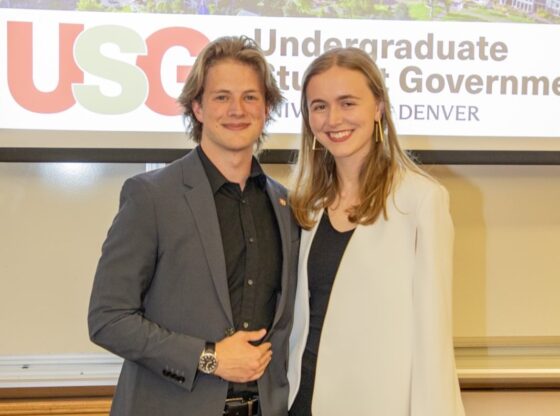On Nov. 7, Project X-ite hosted a panel discussion about diversity and inclusion in the workforce. The panel included Lee Mayer, founder and CEO of Havenly, Ryan Ross, president and CEO of Urban Leadership Foundation Colorado and Pattie Money, chief people officer at Sendgrid.
There were around 50 community members who attended the discussion at the Daniel Felix Richie School of Engineering and Computer Science. Project X-ite is a DU founded program with a mission to “connect all the resources of the University of Denver to advance innovation, technology and entrepreneurship across our community, region and world.” They host numerous speaker series, pitch competitions, design challenges, startup weekends and podcasts. Additionally, the X lab and X-ite solutions office hours where student entrepreneurs can receive help implementing business ideas. The X lab is open daily in Margery Reed Room 116.
The presentation began by explaining their interpretation of diversity and inclusion as seen with their particular businesses. They agreed that diversity is what makes a person unique, such as the environment they grow up in and the perspective they bring to a job. However, inclusion is specific actions that a business takes to promote an accepting, diverse community.
“Diversity is dot dot dot…it is complex, malleable, unidentifiable and embraces a range of differences. We have to have the courage to try it on. Inclusion is what are you doing to make an environment diverse. These conversations have to cut themselves from revenue,” said Ross.
“I agree with that. We can hire people, but creating an environment where people want to stay is a challenge,” said Money.
The discussion transitioned to the disconnect between diversity and inclusion in the workforce versus the social inclusion and diversity in communities. Ross mentioned that people are comfortable having discussions about diversity in Urban Leadership Colorado but his co-workers would go home without saying hello to their neighbors.
“In our companies now it’s rare that we talk about diversity. We only have one African-American and one Asian on our team. Very rarely do I think, ‘I’m a white chick! I’m a female entrepreneur. What do I do?’ There are differences in the way female-operated companies operate. We start to look for personality diversity—for example, in people who are intense or thoughtful,” said Mayer.
The panelists maintained that the conversation about diversity and inclusion needs to happen at the beginning, with an emphasis that expanded beyond the success of individual companies.
“Our organization is a nonprofit organization focused on building the next generation of African-Americans. But then we think about how many CEOs in Fortune 500 companies are African American. Those numbers are always very low. There are systems created in the 1980s when women were not in leadership roles or businesses. You have to go out and be intentional about finding talent.” Ross said.
The evening closed by urging the audience to take an active role in promoting diversity and inclusion. The speakers agreed that diversity and inclusion is a challenging goal, but it is attainable.
“We’ve been provided with a great challenge and great opportunity. When you look back at the country’s history, people have been left out of the conversation. People without a voice without being marketed to, only in the last 10 to 15 years. What a great thing that we get to do together.” said Mayer.
Students can learn more about Project X-ite’s upcoming events by visiting their website or through advertising at common areas on campus.











